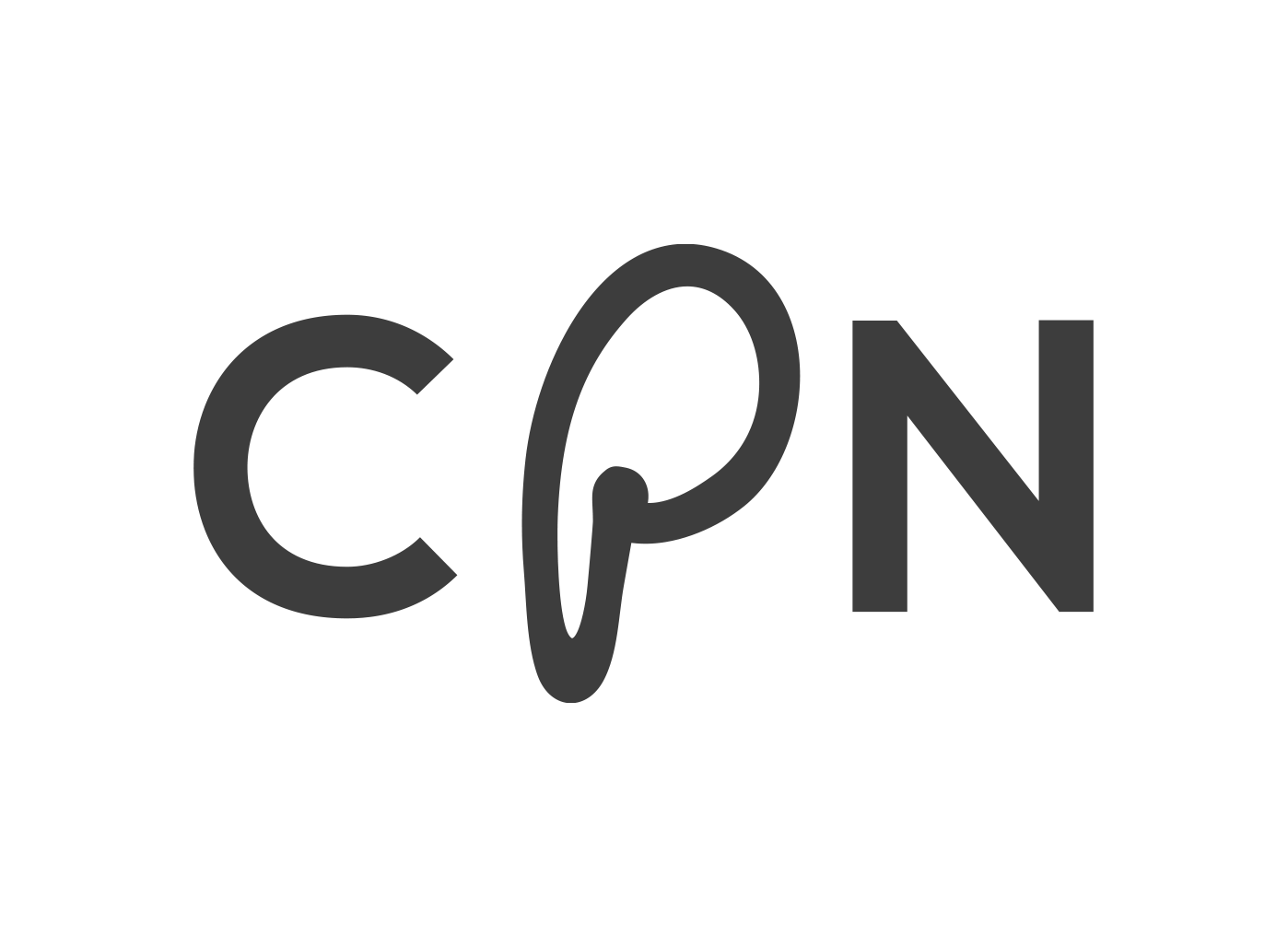CPN Number: Unraveling Myths and Legal Realities
- What is a CPN number?
- Can using a CPN improve my credit score?
- Is it legal to get and use a CPN?
- How do I acquire an SSN legally if I need one?
- What steps can I take to protect myself from CPN fraud?
- Why might someone want to use a CPN instead of an SSN?
- What exactly does “Understanding Credit Privacy Numbers (CPNs)” mean?
Ever wondered what a CPN number could mean for your credit report, payments, accounts, and loan journey? It’s a concept wrapped in curiosity and, at times, confusion.
In the bustling world of credit and finance, understanding every tool available, including legal cpns, can be the edge you need. A CPN number stands as one such tool—shrouded in mystery but with potential to open doors if understood correctly and linked to a credit report.
This post aims to demystify this enigmatic figure and explore its place within personal finance management.
Navigating through the labyrinth of credit scores, applications, and approvals can seem daunting. But knowledge is power—and that’s especially true. Let’s dive into the reality behind CPN numbers: their purpose, legality, and how they fit into the broader picture of fiscal responsibility.
Exploring CPN Fundamentals
CPN Defined
A Credit Privacy Number or CPN number is a nine-digit ID number. It looks like an SSN. People use it mainly for credit matters. But, unlike Social Security Numbers, the government does not issue CPNs.
CPNs are for individuals seeking privacy in their credit transactions. They serve as a shield against identity theft and fraud. Yet, they’re not a free pass to avoid past debts or bad credit history.
Some think of a CPN number as a fresh start for their financial profile. However, this belief can lead to misuse and legal issues if not understood correctly.
CPN vs SSN vs ITIN
The differences between these numbers are significant:
An SSN is for U.S citizens and residents.
An ITIN, which stands for Individual Taxpayer Identification Number, helps non-resident aliens file taxes.
A CPN, while it can be registered with services like legalnewcreditfile.com, is neither an SSN nor an ITIN.
Each number serves its unique purpose:
The SSN tracks lifetime earnings and benefits eligibility.
The ITIN allows tax payments and processing by those without an SSN.
The CPNs are intended strictly for protecting one’s credit information.
It’s essential to note that only SSNs and ITINs are recognized federal identifiers.
Functionality
CPNs act as placeholders in certain credit-related situations where you would typically use an SSN:
They cannot be used when looking for work.
Government forms will still require your actual social security number.
Celebrities might use them to keep their personal details private due to public exposure risks associated with fame.
Financial institutions have varied policies on accepting these numbers; some may accept them while others may reject them outright due to the potential risks involved.
Despite its uses, you must remember that a CPN number won’t replace your legal obligations tied to your real social security number.
Origin and Legitimacy
The idea behind the creation of the Credit Privacy Number was noble – protect people’s privacy from being compromised through their financial dealings.
However,
There isn’t any official body overseeing how these numbers come about or get distributed,
which means there’s no guarantee of protection or legitimacy behind each issued number.
These numbers often pop up in conversations about improving one’s credit score quickly—usually marketed by companies promising quick fixes but potentially leading customers into gray areas of legality.
Misunderstanding what a CPNA truly represents could lead someone down risky paths including identity fraud charges.
Understanding CPN Usage
Purpose of CPNs
CPNs, or Credit Privacy Numbers, are often presented as a way to start over with one’s credit history. They’re marketed to those who seek a clean slate. The idea is that by using a CPN number instead of your Social Security Number (SSN), you can maintain privacy on your credit reports.
These numbers are sometimes used in situations where an individual prefers not to disclose their SSN. For example, when applying for an apartment lease or utilities services, some might opt for a CPN for privacy reasons.
Proponents also claim that CPN number help prevent identity theft. This belief stems from the notion that by limiting the use of one’s SSN, there’s less chance it can be stolen and misused.
Lastly, individuals looking for new credit opportunities may see CPNs as an attractive option. They believe these numbers will allow them access to credit which they might otherwise be denied due to past financial issues.
Marketed as fresh starts
Intended for more private credit reporting
Used in place of SSNs occasionally
Believed to protect against identity theft
Sought after by those wanting new credit chances
Reasons for Utilization
The desire to hide poor credit scores drives many towards using a CPN number. Some view it as creating distance from their financial pasts.
Starting fresh financially is another strong motivator behind choosing a CPN. It offers hope and appears as if it could erase years of bad financial decisions overnight.
There’s also an attraction because people see it as a quick-fix solution—especially appealing in our fast-paced society where long-term strategies often take second place to immediate results.
Unfortunately, many users lack awareness about legal implications tied with using these numbers improperly or fraudulently.
People don’t always realize that while using a CPN number might seem like bypassing negative history; this action has potential legal consequences.
Here are several reasons why people consider utilizing a CPN:
To mask low credit scores.
To symbolically start anew financially.
Because they want quick solutions.
Due to unawareness about possible legal issues.
Improving Credit Scores
Even if someone decides on taking up a CPN, building good credit still demands time and effort—the same principles apply just like with traditional SSNs.
Regular payments made on time and responsible usage remain fundamental practices in improving any kind of score attached to one’s name—be it linked with an SSN or CPA number alike.
Ethical practices should stay at the forefront when attempting any form of improvement regarding personal finances—including managing lines of credits associated with either type number system being discussed here today: social security versus consumer privacy ones (CPAs).
In order words:
Good habits must continue even under different identifiers such us Consumer Privacy Numbers(CPN).
On-time payments plus sensible spending habits boost all sorts scoring metrics regardless what identifier gets used initially during setup processes involved therein respectively speaking thereof accordingly so forthwith et al., etcetera ad infinitum amen!
Ethics matter immensely across entire spectrum concerning fiscal management tasks undertaken willingly each day around globe universally without exception nor exclusion whatsoever period full stop end story!
The Legality of CPNs
Legal Concerns
CPN number, or Credit Privacy Number, is often surrounded by controversy. Legal issues arise when they’re misused. For instance, using a CPN that belongs to someone else is outright fraudulent.
It’s important to know that you don’t have to give out your Social Security Number (SSN) all the time. There are situations where not disclosing your SSN is perfectly legal and within your rights.
However, there are valid scenarios for using CPNs. They can serve as a shield for privacy in certain financial transactions. But these cases are specific and should be approached with caution.
Using a CPN number instead of an SSN must be done properly to avoid legal trouble. If it’s used incorrectly, you could face serious consequences. This includes being charged with fraud or identity theft.
Remember, just because disclosure of your SSN isn’t always required doesn’t mean you can use a CPN without understanding the risks involved.
Obtaining Legally
Some private companies claim they can legally issue CPNs if used correctly. However, this area is murky at best and demands thorough investigation before proceeding.
If considering obtaining a CPN number from such sources:
Perform extensive due diligence.
Understand what you’re signing up for.
Be wary of companies promising quick fixes or those who lack transparency about their processes.
The website https://legalnewcreditfile.com suggests consulting professionals when dealing with credit matters involving alternative identification numbers like CPN number.
They recommend ensuring any company offering such services follows strict guidelines and adheres to lawful practices regarding credit reporting and lending laws.
Before getting involved with any service claiming to provide legal issuance of CPN number:
Check their track record.
Look into customer reviews carefully.
Consult with experts who understand the nuances of credit law thoroughly.
Acquiring a New SSN Legally
Feasibility of New SSN
Obtaining a new Social Security Number (SSN) is not an everyday occurrence. Rare circumstances may warrant such a drastic measure. The criteria set by the Social Security Administration (SSA) are stringent. One must provide convincing documentation and proof to be considered.
For example, victims of identity theft who face ongoing financial harm despite remedial efforts might qualify for a new number. Similarly, those in situations where their life is in danger, like domestic violence survivors, could also be eligible.
Before attempting this process, it’s crucial to consult SSA guidelines thoroughly. They outline the acceptable reasons for issuing a new SSN. Remember that these cases are extreme and exceptions rather than the rule.
Legal Process Overview
When considering acquiring a new SSN legally, understanding relevant laws is vital. Familiarize yourself with fair lending practices governed by federal law. These rules aim to ensure fairness and transparency in credit transactions.
The Fair Debt Collection Practices Act protects consumers from abusive debt collection tactics. It’s essential to know your rights under this act when dealing with creditors or collections agencies.
Moreover, stay aware of your legal responsibilities when engaging with creditors. Ignorance can lead to unintended violations of agreements or regulations.
Keeping up-to-date with consumer protection legislation changes is also important as they can impact your rights and obligations significantly.
Avoiding Illegal Alternatives
With offers flooding the market promising instant fixes like CPN number for credit issues—beware! Reject these too-good-to-be-true promises as they often lead down illegal paths.
Always research extensively before engaging any service claiming to solve credit problems quickly or offering alternative identification numbers like CPNs which have no legal standing and could get you into serious trouble.
Trust established companies over unverified entities that lack credibility and proper accreditation; doing so will protect you from potential scams or legal repercussions associated with illicit activities.
Protecting Yourself from CPN Fraud
Effective Scam Avoidance
Scammers often use Credit Privacy Numbers (CPNs) to trick people. They might promise a new credit identity. But this is illegal. To stay safe, you need to be alert and informed.
Know the signs of fraud. If someone says they can erase your bad credit with a CPN, it’s likely a scam. Real CPNs are rare and for witness protection mostly.
Always check credentials when getting financial advice or services. Reliable professionals won’t suggest illegal methods like fake CPN number.
Final Remarks
Navigating the world of CPN numbers can feel like a tightrope walk between legality and necessity. You’ve seen how CPN number can be both a shield against identity theft and a sword that cuts through privacy.
They’re not a one-size-fits-all solution, but for some, they’re a pivotal step towards financial discretion. Remember, the law’s clear: legitimacy is key. If you’re eyeing a fresh start with your credit, do it by the book to stay clear of fraud’s sticky web.
Take charge of your financial story. Seek legitimate avenues if you need a new SSN and always, always do your homework before diving into the CPN pool.
Your credit’s more than a number—it’s your ticket to opportunities. Protect it. Grow it. And if you’re ever in doubt, reach out to a trusted financial advisor. They’ve got your back so you can stride forward with confidence.
Reasons for Utilizing CPNs
Privacy Protection
CPNs, or Credit Privacy Numbers, offer a layer of privacy. They are nine-digit identification numbers that can be used in place of a Social Security Number (SSN) for some credit transactions. This means your SSN stays private.
People often use CPNs to shield their SSN from exposure. When you apply for credit with a CPN number, your SSN is not on the application. This reduces the risk of identity theft.
A real-life example is when someone moves to a new city and wants to keep their personal information secure. A CPN number can help them establish services without giving out their SSN.
Credit Repair Tool
Some individuals turn to CPNs as they work on fixing their credit scores. A poor credit history can limit opportunities and increase stress.
Using a CPN number might allow these individuals to start fresh with financial institutions. It’s like getting another chance at building good credit from scratch.
However, it’s essential to know that using a CPN number does not erase bad credit history linked to an individual’s SSN.
An example here would be someone who has gone through bankruptcy seeking new ways to rebuild their financial standing without being immediately penalized by past mistakes.
Business Endeavors
Entrepreneurs sometimes use CPNs when setting up business-related finances separate from personal ones. This separation helps maintain clear records and limits personal liability.
For instance, if someone starts an online store, they might get a business loan under a CPN number rather than risking personal assets tied up with an SSN.
This practice ensures that any debt incurred doesn’t affect the entrepreneur’s personal credit score directly.
Note: While there are legal uses for CPN number, it’s crucially important for consumers to understand that misuse or fraudulent creation of these numbers is illegal and punishable by law.
Understanding Credit Privacy Numbers (CPNs)
Legal Status
Credit Privacy Numbers, or CPNs, are often surrounded by confusion regarding their legality. It is crucial to recognize that while CPNs themselves are not illegal, the misuse of these numbers can lead to unlawful activities.
For example, using a CPN number in place of your Social Security Number (SSN) for credit purposes might be considered deceitful.
Misrepresentation using a CPN number can result in severe consequences. Law enforcement agencies closely monitor the use of such numbers to prevent fraud. Individuals considering a CPN should understand its limitations and legal boundaries.
Obtaining a CPN Number
To obtain a legitimate CPN, one must follow specific steps through proper channels. The process typically involves filing paperwork with state or federal agencies that offer these identifiers for certain situations.
It is important to avoid services promising quick fixes or instant credit improvement through CPNs. Many such offers are scams preying on those desperate for financial solutions. Always research thoroughly before proceeding with any service claiming to provide legal CPNs.
Using Your Number
Once obtained legally, it’s essential to know how and where you can use your new number appropriately.
A valid use case could be protecting your SSN from exposure in public records.
However, applying for credit using a CPN number instead of an SSN number without disclosing this fact could be considered fraudulent.
Understanding the scope and restrictions associated with using a Credit Privacy Number will help ensure you stay within the bounds of the law while seeking privacy protection.
Risks Involved
Fraud Potential
The potential for fraud is high when dealing with entities promoting illegitimate uses of Credit Privacy Numbers. Scammers may encourage individuals to start fresh financially by misusing these numbers as part of so-called “credit repair” schemes which can lead users into deeper legal trouble rather than solving their problems.
Financial Consequences
Using a falsely obtained or improperly used number can have dire financial consequences including:
Damage to one’s actual credit score if linked back.
Legal action taken against individuals involved in fraudulent activities related to improper use of these numbers.
Being aware of risks helps maintain financial health and steer clear from dubious practices involving questionable usage of Credit Privacy Numbers.
Identity Confusion
Improperly using a CNP number may cause confusion between an individual’s true identity and their assumed identity under this number leading potentially:
To mix-ups with someone else’s debt obligations.
To issues obtaining genuine lines of credit due to unclear history under multiple identifiers.
Understanding implications fully prevents unintentional harm caused by blending identities within financial systems.
Frequently Asked Questions
Q1. What is a CPN number?
Ans. A CPN, or Credit Privacy Number, is a nine-digit identification number that some individuals use in place of their Social Security Number (SSN) for credit- related purposes.
Q2. Can using a CPN improve my credit score?
Ans. No, a CPN is not a legal way to reset or hide your true credit history. Genuine improvement comes from responsible financial habits and time.
Q3. Is it legal to get and use a CPN?
Ans. The legality of CPNs is complex; while they are not illegal per se, their usage can be fraught with legal issues. It’s vital to stay informed and cautious.
Q4. How do I acquire an SSN legally if I need one for credit applications and credit reports?
Ans. To obtain an SSN legally, you must apply through the Social Security Administration by providing the required documentation proving identity, age, and citizenship status.
Q5. What ways can I take to protect myself from CPN fraud and credit report scams by monitoring credit bureaus?
Ans. Stay vigilant by researching thoroughly before engaging with any service offering CPNs. If something seems too good to be true, it likely is. Trust official sources only.
Q6. Why might someone want to use a CPN instead of an SSN for a cleaner credit report or to separate their financial accounts and payments?
Ans. Some people may seek privacy from identity theft concerns or believe incorrectly that using a CPN can help them start fresh financially. However, these perceptions often carry risks.
Q7. What exactly does “Understanding Credit Privacy Numbers (CPNs)” mean?
Ans. It means gaining knowledge about what CPNs are intended for, how they operate within the financial system, and recognizing both the potential misuses and misconceptions surrounding them.











